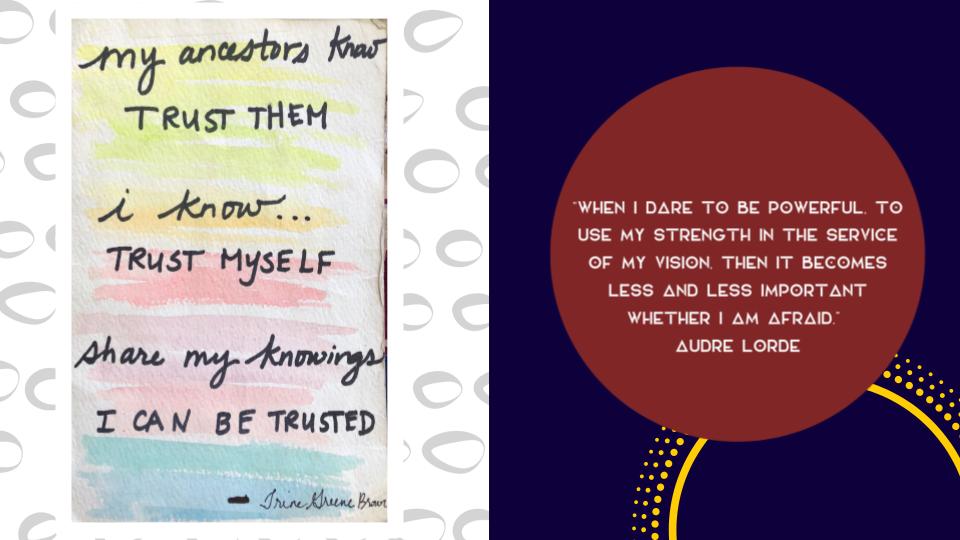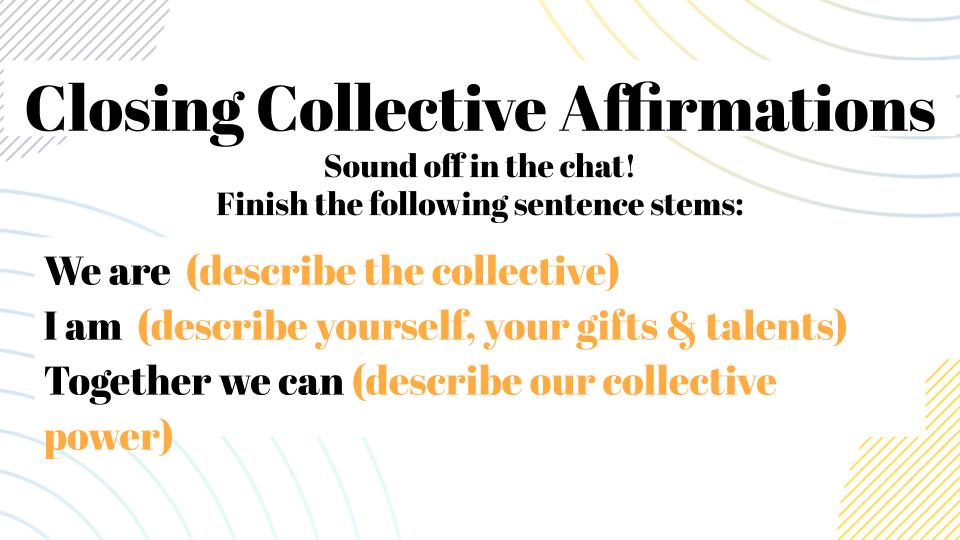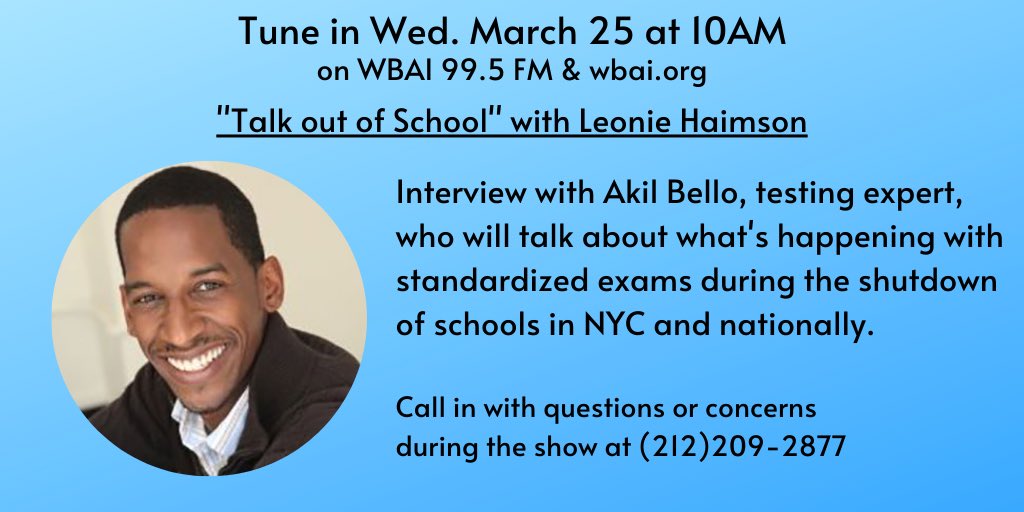Community Care During COV19
Dear Community,
Parenting for Liberation is holding you, your children, your families, and your communities in our thoughts and prayers. These are scary times right now—with lots of uncertainty and rapidly evolving updates about COVID-19, from school closures, remote working, to social isolation. On top of information from the government and public health officials, there are many resources being made available via the interwebs to help parents from homeschool activities to color coded daily schedules, and while it’s really great to have so many resources, at times it all just feels overwhelming. Rather than feeling like recommendations, some of it leads to some of us having negative self talk and self critique about our parenting —
“Am I doing enough? Am I doing it right?”
Parenting for Liberation held space virtually with a dozen Black parents to discuss this and more. Continue below for a PDF filled with slides & coloring sheets filled with affirmations and positive self talk.






















